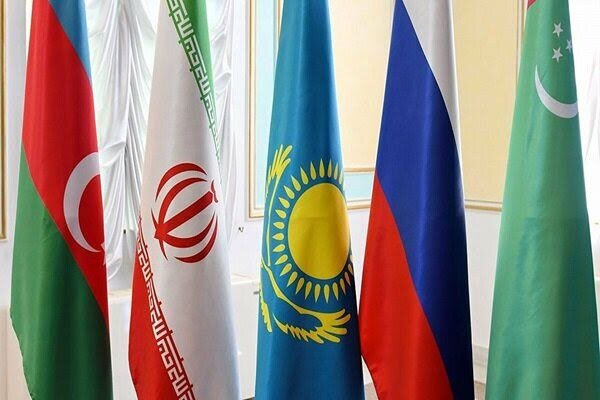Iran ready to boost health ties with Caspian states

TEHRAN –During the third Caspian Economic Forum, held in Tehran on February 17-18, the deputy health minister for international affairs voiced Iran's willingness to boost cooperation in the health sector with the Caspian Sea coastal states.
The two-day event aimed to enhance economic, trade, scientific, and technological cooperation among Caspian littoral states. It focused on fostering joint efforts in healthcare, energy, finance, tourism, investment in free trade zones, and logistics.
Highlighting that the five Caspian littoral states, Iran, Kazakhstan, Russia, Azerbaijan, and Turkmenistan, can expand their cooperation in different fields, Mohammad-Hossein Niknam called for taking practical measures to improve people’s health in the region, the health ministry’s website reported.
Elaborating on Iran’s capabilities in the health sector, the official said the five countries can promote ties in different fields including medicine, medical equipment, medical education, promotion of professional skills, health research, provision of specialized and subspecialized medical services to patients, dealing with communicable and non-communicable diseases and other aspects of public health.
Iran’s health sector a role model in the region
In January, President Masoud Pezeshkian called the country’s health system a role model in the region and even the world thanks to its unique, particularly primary healthcare, services.
In a letter addressing a national seminar held in Mashhad to honor healthcare staff including nursing aids, Pezeshkian lauded the substantial progress made in the health sector, the health ministry’s website reported.
The president said these remarkable achievements are the results of health workers’ ceaseless efforts, such as providing vaccination and prenatal care for pregnant mothers, controlling infectious diseases, promoting health education, sharing knowledge, and training new generations of health staff nationwide.
The notable increase in life expectancy, reduction in infant mortality rate, control of infectious diseases, and reduction in complications from chronic diseases are all due to health workers’ dedication and commitment.
Also, in October 2024, the World Health Organization’s (WHO) director for the Eastern Mediterranean Regional Office (EMRO) called Iran’s health sector a role model in the region.
WHO EMRO is interested in expanding cooperation with the Islamic Republic of Iran, IRNA quoted Hanna Hasan Balkhi as saying.
The official made the remarks in a meeting with Alireza Raeisi, the Iranian deputy health minister, and Mohammad-Hossein Niknam, the deputy health minister for international affairs, on the sidelines of the Seventy-first session of the WHO EMRO, which was held in Doha, Qatar, from October 14 to 17, 2024.
“During my short visit to Iran a few months ago, I became familiar with the capabilities of Iran in the health sector; Iran is a role model in health in the region,” Balkhi noted.
“Utilizing full potentials available in the [regional] countries is essential for us, and we will not hesitate to support the implementation of health programs,” the official noted.
Raeisi, for his part, enumerated priorities in the country’s health sector, namely completing the implementation of the family physician program and the electronic health record program.
Referring to non-communicable diseases as another important issue in the health sector, the official said, “Unfortunately, due to the crises in West Asia, the prevalence of non-communicable diseases has increased, and the onset age of non-communicable diseases such as diabetes and obesity has lowered.
Therefore, we are planning to control the risk factors from childhood through old age. To achieve the goal, we need to develop plans in cooperation with the World Health Organization.”
MT/MG
Leave a Comment